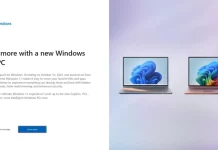
From home- and ride-sharing apps to TV and movie streaming subscriptions to social media platforms – Internet companies have transformed our lives.
Today the internet sector contributes approximately $1 trillion, or 6 percent of GDP, to the national economy, as well as 3 million jobs and 231,000 businesses. These digital economy jobs and businesses are thriving in almost every city — and in metro areas across the country.
The truth is undeniable: cities are shaping the next chapter in America’s history, and the digital economy is a driving force. While venture capital in the tech industry has historically concentrated in a handful of U.S. cities, metro areas nationwide are benefiting from the internet sector.
Local policymakers are demonstrating leadership and building deeper internet ecosystems, resulting in new businesses emerging everywhere. Meanwhile, cities across the country are popping up as new tech hubs by mixing unique cultural and historical traits with innovative policy approaches.
We believe that cities broaden this growth even further by highlighting success from the ‘ground up’ and diffusing the success of local innovation into the national policy dialogue. Those cities that best integrate digital technologies into their economies and ecosystems can achieve more for their residents — and those that do not could fall behind.
In our report, Here They Come: A Look at the Future of Cities in the Internet Age, published by the National League of Cities and Internet Association, we focused on actionable lessons and examples of innovation leadership in four unique cities: Columbus, Ohio, Kansas City, Missouri, Phoenix, and Pittsburgh. We chose these cities for their major internet-sector presences — and for the valuable lessons offered by their successful community-oriented programs.
In Columbus, homegrown tech firms are setting up shop and workers from the coasts are moving in to take advantage of a friendly business environment and booming tech scene. The city has quietly built the right environmental factors to foster tech businesses and is now reaping the benefits — perhaps most notably through its victory in the national Smart City Challenge for its technology-integrated transportation system plan.
Kansas City has one of the fastest growing tech scenes of the past decade, and boasts a higher concentration of internet sector and STEM workers than New York, Los Angeles, or Chicago. The city has taken care to develop economic inclusion plans to ensure the sector’s benefits are diffused across its residents — while also applying the tech start-up mentality to its unique cultural traditions, such as in its Arts Incubator program.
In Phoenix, leaders are actively pushing economic diversification and experimentation through digital technology. They have opened up government data for the public, welcomed autonomous vehicles, and are working with local partners to better understand the strengths and weaknesses of the area’s labor force.
In Pittsburgh, the city is using the world-class tech talent groomed in its universities to revitalize the region and attract offices for numerous major internet firms. Local stakeholders have partnered with private sector firms to develop and test state-of-art technologies. The city is also examining its own internal processes for tech applications, such as in procurement.
All of these cities demonstrate that strong, local digital economies have underlying strengths that help them thrive, ranging from robust partnerships to a focus on economic inclusion. Throughout our research, eight key lessons surfaced again and again to guide city investment in the tech economy:
- Transportation systems are critical infrastructure and can rapidly benefit from new technologies. From autonomous vehicles to more seamless and connected public transportation, the future of mobility is reliant on technology to thrive.
- Open data provides win-win opportunities to cities and community members. Businesses can use the data to improve products, services, and efficiency while governments can gain important insights on services and community needs.
Rapid procurement system pilot projects allow for faster development of innovative city services while minimizing the risk from larger scale implementations. - Partnerships are key to achieving policy goals. Governments can often draw on the technical expertise of the private sector while businesses can use the vision and policy expertise of local leaders to find better solutions.
Capitalize on the unique cultural and historical assets. Rather than imitating another place, cities should look at how they can merge their unique heritage with tech. - Emphasize the importance of economic inclusion. Build programs that allow every resident the opportunity to connect with the internet and every business the opportunity to build digital tools.
- Experiment with new programs through pilot systems. Small scale projects are a valuable way to test ideas, but also manageable for local start-ups who may not yet have the capacity for a full-scale implementation.
Invest time and resources to build well-rounded labor markets and diverse economies. Internet tools can bolster any business and industry, but those tools require individuals with training.
Ultimately, when fostered with intent, the internet sector provides great promise for cities to use technology to build more inclusive, innovative economies. As we near the start of the 2020s, it is increasingly evident that cities are leading the national agenda on innovation.
The digital economy is driving an unprecedented expansion of ever-smarter, more-connected cities — and local leaders would do well to prepare now.
























